Car Loans & Auto Finance: What Lenders Verify and How to Prepare
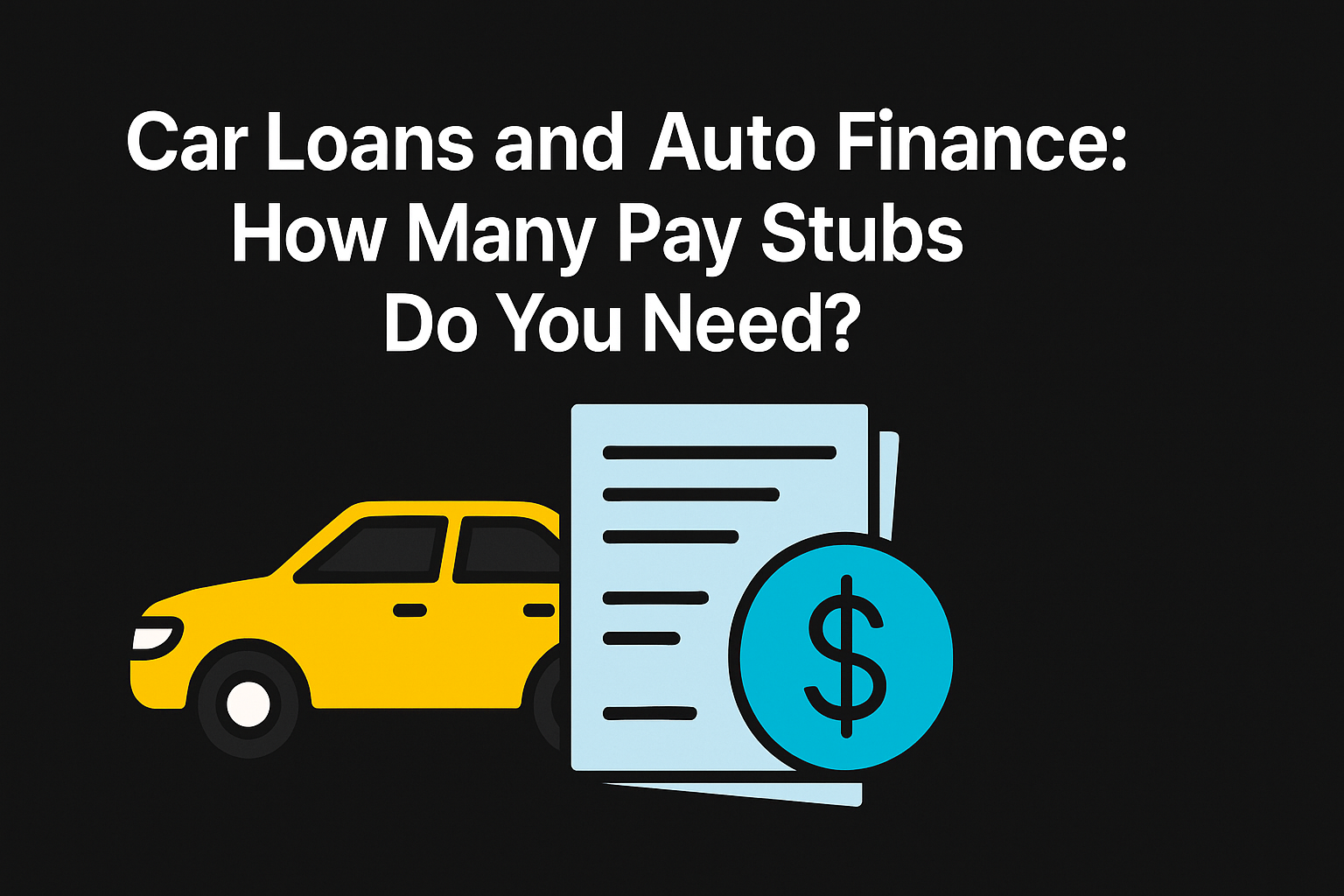
Last updated: August 2025
Wondering how many pay stubs for car loan approval you need? The short answer is: it varies by lender, by your employment type, and by country (US, UK, or Canada). What’s constant is what underwriters care about—current, verifiable income that supports your proposed monthly payment, presented cleanly and consistently with your application.
At FinancialDocsProvider.com, we’re a compliance‑first document services team. We format, organize, and package your files so they’re easy to review. We do not fabricate numbers, change dates, or alter payees—ever. If you need help with proof of income editing (formatting and legibility only) or bank statement formatting, our specialists can prepare lender‑ready PDFs that look professional and are easy to verify.
Related Entities & Terms
- W‑2 (US), 1099‑NEC/1099‑MISC (US), T4 (Canada), SA302 & Tax Year Overview (UK), NOA—Notice of Assessment (Canada)
- CFPB (US), FTC (US), IRS (US); FCA & GOV.UK (UK); FCAC & CRA (Canada)
- VOE (Verification of Employment), DTI (Debt‑to‑Income), HP (Hire Purchase), PCP (Personal Contract Purchase)
- Preapproval vs. dealer-arranged financing; “F&I” office
- Pay frequency (weekly/bi‑weekly/monthly) and YTD earnings consistency
- Bank statement cross‑checks; deposit descriptions; matching employer names
- Document redaction, PDF merging/bookmarking, optical clarity, export fidelity
- Add‑ons like GAP insurance; Truth‑in‑Lending (US)
By FinancialDocsProvider Editorial Team • Published: August 20, 2025
Legality Basics (US, UK & Canada): Formatting vs. Falsification
United States. Auto financing is governed by consumer finance rules and disclosure laws. The Consumer Financial Protection Bureau (CFPB) provides guidance on shopping for loans and understanding disclosures like Truth‑in‑Lending before you sign. See the CFPB’s Auto Loans resources and its TILA disclosure explainer. Dealers also follow FTC rules for used‑car sales; review the FTC Used Car Rule and the FTC’s consumer handout (PDF) on buying used cars.
United Kingdom. Lenders must assess creditworthiness and affordability under the FCA’s Consumer Credit Sourcebook (CONC). The rules require proportionate verification—firms decide what evidence is appropriate (e.g., payslips, bank statements). See FCA CONC 5.
Canada. The Financial Consumer Agency of Canada (FCAC) explains your protections when financing a vehicle, and the Canada Revenue Agency (CRA) provides official proof‑of‑income options such as a Proof of Income Statement or Notice of Assessment. See FCAC’s page on how you’re protected when buying a car and CRA’s page to get a Proof of Income Statement.
Bottom line: Cleaning up how your documents look is fine and often helpful; changing facts is not. If you’re unsure whether an edit is allowable, contact our team before you submit anything.
Allowed Edits: Practical, Legal Ways to Improve Readability
Underwriters aren’t judging artistic design; they want files that are legible, complete, and consistent with your application. Here are legal ways we help applicants present income clearly:
- Combine multi‑page stubs and statements into one bookmarked PDF (pay period order, employer labels, and bank account last‑4 shown).
- Redact non‑essential data: partial account numbers, unrelated transactions, or personal identifiers that aren’t needed for the credit decision.
- Fix exports: convert screenshots to searchable PDFs; correct tiny fonts or low contrast; ensure totals and YTD are readable when zoomed to 100%.
- Add a cover sheet that maps income sources to documents (e.g., base pay vs. tips/commissions; gig platform payouts).
- Standardize names across stubs, bank statements, and the application (e.g., “Acme Corp.” vs. “Acme Corporation”).
For more presentation tips, see our guide on pay stub formatting mistakes that trigger rejections and our comparison of pay stubs vs. bank statements for proof of income.
What’s Illegal: Changing Facts Is Off‑Limits
Any edit intended to misrepresent income or identity—such as altering gross/net pay, tax withholdings, pay rates, dates, or employer names—is prohibited and can expose you to civil or criminal penalties. The same applies to bank statements (e.g., fake deposits), tax forms, or letters of employment. Our role is limited to formatting and document organization. If a lender asks for information you don’t have, we’ll help you package truthful alternatives (e.g., a bank deposit history or a letter from HR) until the requested stub is available.
Curious how lenders detect fakes? Read our explainer on how loan officers spot fake pay stubs—it will make you appreciate why consistency matters.
Use Cases: how many pay stubs for car loan in the US, UK & Canada
There is no single “magic number” across all lenders. Requirements vary by credit tier, pay frequency, and whether your income is salaried, hourly with overtime, commission‑heavy, or self‑employed. Below are grounded expectations and packaging tips for each market.
United States — Employed (W‑2)
Typical request: One to two recent pay stubs showing year‑to‑date (YTD) earnings that align with your application and bank deposits. Some dealer‑arranged loans will accept a single current stub if supported by a verification of employment (VOE) or consistent deposits. Others—especially subprime programs—may ask for two stubs covering the past 30 days. You’ll also provide ID, insurance, and residence documents. Review CFPB’s auto loan preparation guidance for context on shopping and disclosures.
Packaging tips:
- Make sure the employer name matches across pay stub, application, and bank statement deposit descriptions.
- If pay varies (tips/OT), include the last 2–3 stubs so YTD math is evident, and highlight base vs. variable pay on a cover sheet.
- If you’re new on the job and don’t have a stub yet, ask HR for an employment letter with start date, status, and base pay; pair with your first stub once available.
United States — Self‑Employed / 1099
Typical request: Because contractors don’t have employer‑issued pay stubs, lenders often ask for a combination of recent bank statements (3–6 months), 1099s, and tax returns. IRS resources on forms W‑2 and 1099 are here: W‑2 and 1099‑NEC. If the underwriter needs a wage/income transcript, you can obtain it through the IRS Get Transcript tool.
Packaging tips:
- Provide a simple P&L summary for YTD plus the last two filed returns. If seasonality is strong, include the comparable period last year.
- Label business vs. personal deposits and note platforms (e.g., DoorDash, Upwork) so reviewers can track income streams.
- Use our proof of income editing service to add bookmarks and clarify payers without altering amounts.
United Kingdom — Employed (Payslips)
Typical request: Many UK auto‑finance providers (HP/PCP) look for the last three months of payslips and, sometimes, recent bank statements to corroborate income regularity. Exact evidence is at the firm’s discretion, guided by the FCA’s proportionate verification rules (CONC 5).
Packaging tips:
- Ensure payslip employer names match what appears on your bank deposits (common issue when payroll uses a group name).
- If commission or OT varies, include 3–6 months of slips and add a brief cover note explaining pay structure.
- Weekly paid? Provide enough slips to cover a full recent quarter (12–13 weekly payslips) or supply monthly summaries if your payroll system can export them.
United Kingdom — Self‑Employed
Typical request: Lenders commonly accept SA302 tax calculations plus a Tax Year Overview as proof of earnings, sometimes alongside bank statements. You can print your SA302 from your HMRC account (GOV.UK: SA302 tax calculation).
Packaging tips:
- Provide the latest SA302 + Tax Year Overview and 3–6 months of bank statements highlighting regular trading income.
- If the current year is stronger than prior year, add a YTD income summary with invoices or accountant letter.
- Explain any trading‑name differences between bank deposits and invoices.
Canada — Employed (Pay Stubs)
Typical request: Many Canadian lenders accept one to two recent pay stubs showing YTD totals, supplemented by bank statements if income varies. Some dealers may ask for an NOA or proof‑of‑income print from CRA for additional verification. CRA explains proof‑of‑income options here: Proof of Income Statement.
Packaging tips:
- Make sure employer names and pay dates line up across stubs and deposits.
- If you’ve recently changed jobs, include your offer letter or HR letter with start date and base pay.
- For bonuses, provide the relevant stub and bank entry and annotate on a cover sheet.
Canada — Self‑Employed
Typical request: Bank statements (3–6 months), most recent NOA and T1 General, and sometimes a letter from your accountant. CRA’s overview of NOA is here: NOA/NOR. FCAC also outlines your rights as a borrower (FCAC: protections when buying a car).
Packaging tips:
- Provide a concise YTD income summary and note any seasonality.
- Highlight recurring clients or platforms; attach contracts if available.
- Use consistent naming for your business across all docs.
Mini‑scenarios (What to submit)
- New job, first stub pending (US/CA): HR letter with start date & base pay + first stub when issued; show prior employer’s last stub and recent deposits if helpful.
- Commissioned UK salesperson: Last 3–6 payslips + employer letter describing commission plan; include bank statements to show variability.
- US gig driver (1099): 3–6 months of deposits labeled by platform, 1099s, and latest filed return; add a simple P&L. See our pay stub generator guidance for freelancers (presentation, not invention).
- Canada contractor: NOA + T1 General + 3–6 months of deposits; add signed contracts if renewals are expected.
- Weekly payroll (US/UK): Provide 4–8 recent stubs to show consistency, or a YTD payroll summary if your portal supports it.
Lost access to older stubs? See how to get pay stub duplicates fast. If your bank statement has a minor export issue (blurry text, wrong order), we can help with lawful bank statement formatting.
How We Work: Intake → Reconciliation → Formatting → Delivery
- Intake. You share your unedited files (stubs, statements, tax forms). We confirm scope is purely formatting and packaging. Learn more about our process.
- Reconciliation. We map employers/payers to deposits and highlight any mismatches to fix before submission.
- Formatting. We merge, order, label, and add bookmarks. We can redact sensitive data and correct export fidelity (resolution/contrast/text layer).
- Delivery. You receive a clean, lender‑ready PDF set with a simple cover sheet. If you need changes for a particular lender’s checklist, we’ll re‑package within scope.
Need this quickly or want to understand pricing? You can contact our team anytime.
Quick Compliance Checklist
- Name consistency: The employer/payer name appears the same on the pay stub, bank deposits, and application.
- Time coverage: Provide enough periods to show stability (US/CA: 1–2 recent stubs; UK: 3 months; self‑employed: NOA/SA302 + 3–6 months bank statements).
- YTD sanity check: Do the math—does the YTD align with pay frequency?
- Deposit labeling: If the bank uses abbreviations, add a cover sheet key (e.g., “ACME PAYROLL = ACME CORP”).
- Legibility: Text sharp at 100% zoom; pages in correct order; bookmarks added.
- Redaction: Only remove non‑essential data (partial account numbers). Keep pay amounts and dates fully visible.
- Explain variability: Commissions, tips, or seasonal spikes are noted and supported.
- Self‑employed: Include tax docs (1099s/returns, SA302/Overview, NOA/T1) and a concise current‑year summary.
Common Red Flags That Trigger Rejections
- Employer mismatch: Pay stub says “Acme Corp,” but deposits show “ABC Holdings” with no explanation.
- Impossible YTD math: The YTD doesn’t align with pay frequency or recent amount changes.
- Pay dates that skip or overlap without a reason (e.g., payroll change not explained).
- Blurry screenshots or photos of screens—convert to a crisp, searchable PDF.
- Editing artifacts: Misaligned fonts or pixel halos around amounts. (If you’re tempted to “fix” a number, don’t; it’s illegal.)
- Unexplained cash deposits used to “pad” income—these raise AML/KYC questions.
For a deeper dive into how reviewers scrutinize stubs and statements, see how loan officers detect fake pay stubs.
Helpful Resources & Further Reading
Official guidance (open in new tab)
- US — CFPB: Auto loans hub and Truth‑in‑Lending disclosure; FTC: Used Car Rule.
- UK — FCA: CONC 5 Creditworthiness/affordability; GOV.UK: Get your SA302 tax calculation.
- Canada — FCAC: Protections when buying a car; CRA: Proof of Income Statement and NOA/NOR.
Internal reading on FinancialDocsProvider.com
- Pay stub formatting mistakes that trigger rejections
- How lenders detect fake pay stubs
- Get pay stub duplicates fast
- Pay stub vs. bank statement: which proof works best?
- Need professional help with proof of income editing, bank statement formatting, or to check pricing? Read about our process or contact our team.
FAQs
How many pay stubs do I need for a car loan?
US: Often 1–2 recent stubs that cover the last 30 days; more if pay fluctuates. UK: Commonly the last 3 months of payslips under lenders’ proportionate verification rules. Canada: Frequently 1–2 recent stubs, with an NOA or bank statements if income varies. Lender programs differ, so package enough evidence for a clear picture.
What if I’m self‑employed and don’t have pay stubs?
Provide bank statements (3–6 months) plus official tax evidence: US: 1099s and latest filed return; consider an IRS wage/income transcript if requested. UK: SA302 + Tax Year Overview. Canada: NOA and T1 General. Add a brief YTD summary and label deposits by client/platform.
Can I use bank statements instead of pay stubs?
Often yes—especially for variable or self‑employed income. Ensure deposit descriptions match the payer names on your application. Include enough months to show stability. See our deep dive on pay stubs vs. bank statements.
Is it legal to edit a pay stub to fix a typo?
Formatting for readability or redaction of non‑essential data is generally fine; changing amounts, dates, payees, or rates is illegal. We only assist with lawful formatting and packaging.
I just started a new job. What can I submit before my first stub?
An employment letter with start date and base pay, plus your first stub when available. If you have overlapping income (e.g., last employer’s final stub), include it and explain the timeline on a cover sheet.
Need accurate, reliable financial documents fast? Contact FinancialDocsProvider.com now.

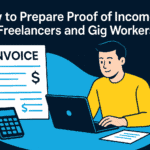
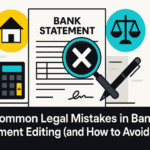
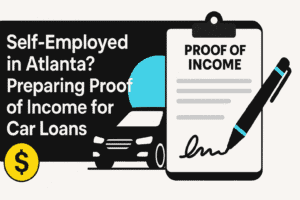
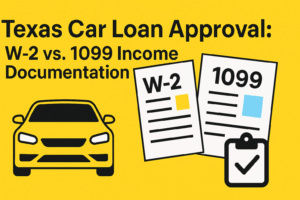
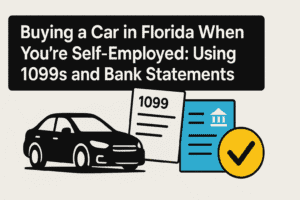

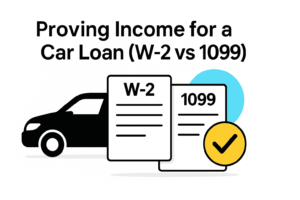
Add comment